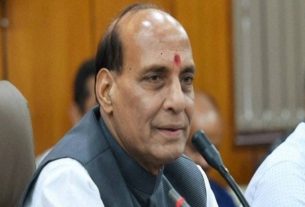Islamabad — In a significant diplomatic exchange, Pakistan has publicly rebuffed China’s recent criticisms regarding the safety of its personnel in the country. This response comes in the wake of increasing violence targeting Chinese workers, including suicide bombings that have raised serious concerns about security.
Foreign Ministry spokesperson Mumtaz Baloch addressed the media, describing the Chinese ambassador Jiang Zaidong’s warning as “perplexing” and inconsistent with the longstanding diplomatic traditions between the two nations. Baloch assured that the Pakistani government is fully committed to safeguarding the security of Chinese nationals, their projects, and institutions within its borders.
The Chinese ambassador had previously expressed grave concern over the safety of Chinese workers, citing multiple deadly attacks, including incidents in March and October 2023 that resulted in the deaths of seven Chinese nationals. This brings the total fatalities of Chinese workers in Pakistan to 21 since the initiation of the China-Pakistan Economic Corridor (CPEC) projects nearly a decade ago. Jiang emphasized that such violence is “unacceptable” and poses a significant constraint on Beijing’s investments under the Belt and Road Initiative (BRI).
During a seminar in Islamabad, Jiang urged Pakistan to implement “effective remedial measures” to prevent future attacks and to ensure that those responsible are identified and punished. He stressed that security is Beijing’s paramount concern, stating that without a stable environment, further investments are jeopardized.
In response, Baloch reassured that investigations into the attacks on Chinese workers are underway, and the findings have been communicated to China, though she did not provide specific details. Pakistani Foreign Minister Ishaq Dar also spoke at the seminar, affirming that Pakistan is taking decisive action against terrorism and is committed to enhancing security for Chinese nationals.
Dar emphasized the importance of security in attracting Chinese investment, quoting Chinese leaders as stating that without addressing security issues, no lucrative investment would be pursued. He committed to sharing progress updates with Chinese officials in high-level discussions scheduled for next month.
Despite these reassurances, skepticism remains about the effectiveness of Pakistan’s security measures. Since the launch of CPEC projects, the military has established a specially trained unit of over 13,000 troops to protect these initiatives. However, ongoing attacks have raised doubts regarding the unit’s efficacy.
The Baloch Liberation Army (BLA), a separatist group operating in Balochistan, has claimed responsibility for many of the recent attacks on Chinese workers. The BLA accuses China of exploiting the province’s natural resources and has called for the withdrawal of Chinese investments, intensifying tensions in the region.
Both Pakistan and China have rejected the BLA’s allegations, insisting that the group aims to undermine development efforts in Balochistan and disrupt the close ties between the two nations. As the situation unfolds, Pakistan’s ability to address these security concerns will be crucial in maintaining its partnership with China and ensuring the safety of foreign workers.





